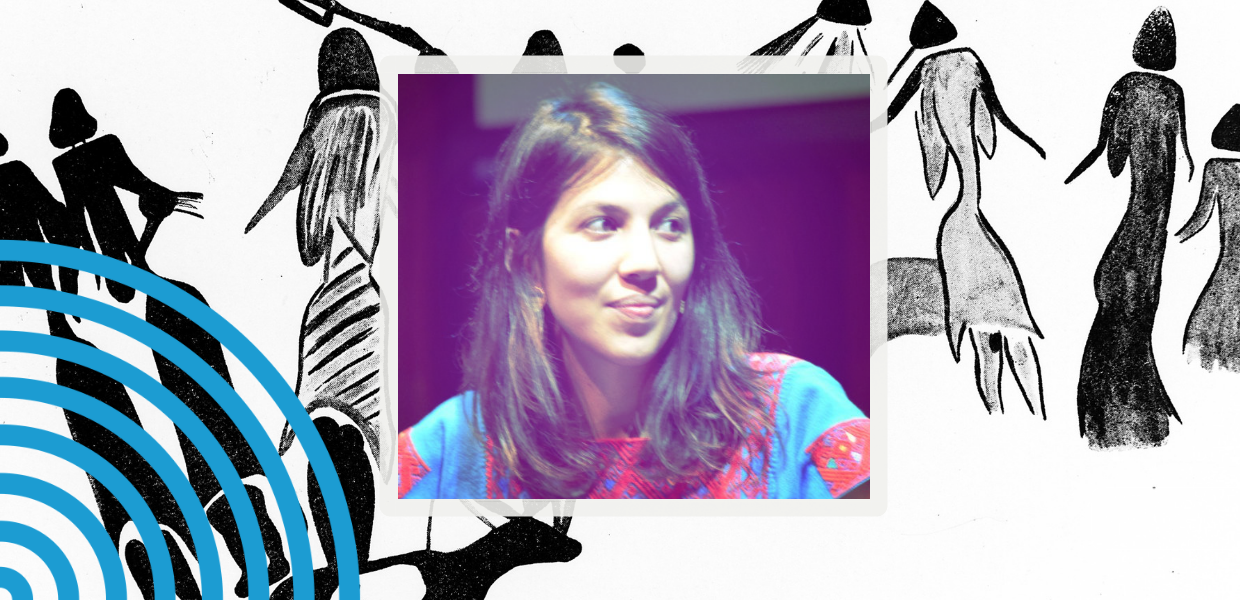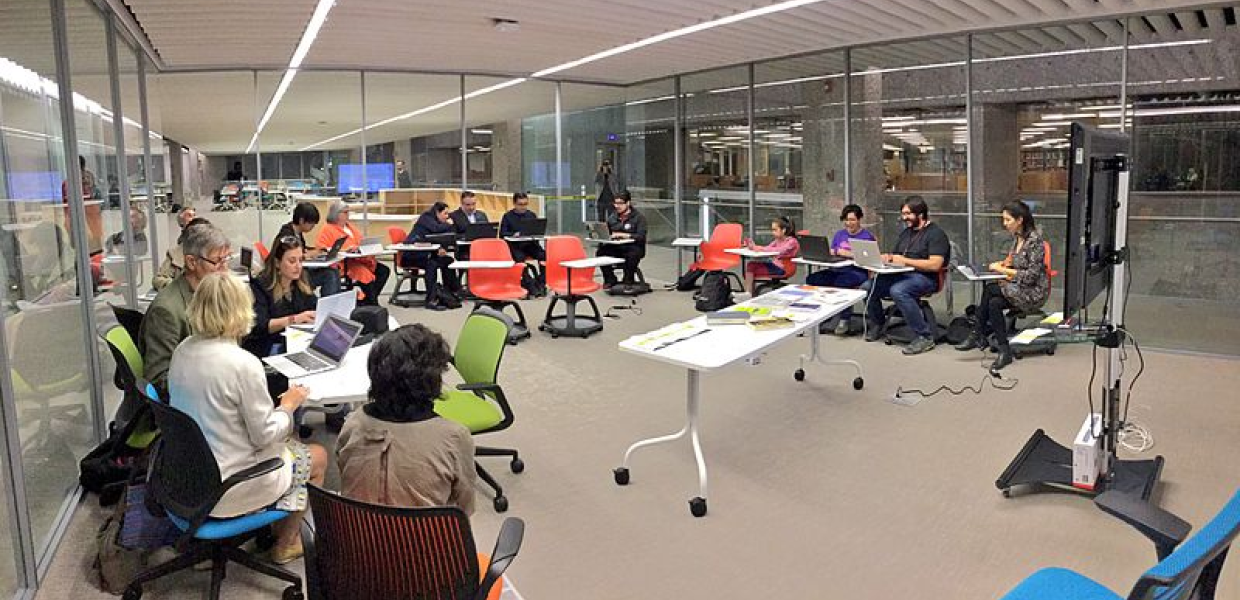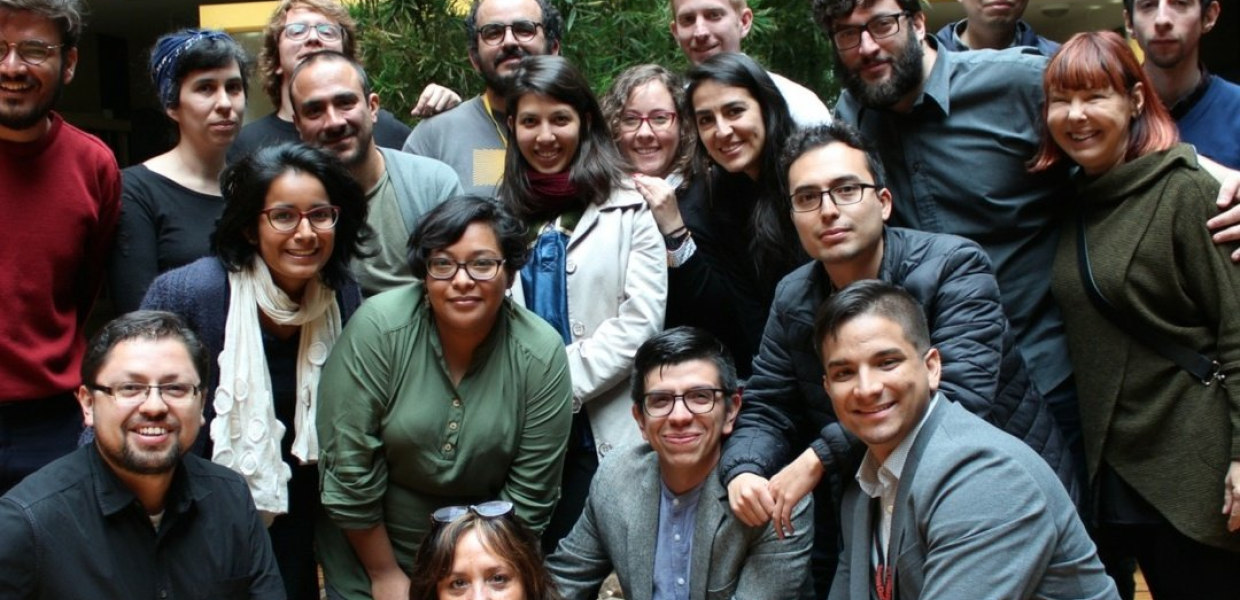How did you get into your field?
It all started when at the age of thirteen my aunt Adalia gave me my first computer as an early quinceañera’s present. I spent many hours surfing the Internet and tinkering hypertexts with all the interesting things I found. My model was the highly linked protestant Bibles I grew up with, which were enriched with maps, etymologies, genealogies and so on. My naive teenage self thought: 'I have to share this with the world, they need to know'. Can you imagine?, I thought I was going to invent the digital humanities! Fortunately, because of the great work of Isabel Galina and Ernesto Priani promoting the field in Mexico, I found out there was no need to reinvent the wheel, and that I could actually stand on the shoulders of giants. So I looked for universities where I could learn digital humanities.
Two things were important for me: it had to be a public university, and it had to have an inclination for free, libre and open software (FLOS). And I found it! I did my MA at the University of Würzburg in Germany and it felt like when your ears pop. I learnt Python and R, and other tools I knew I could use back home in our public institutions in Mexico. During my Erasmus semester at King’s College London, I took a class on digital assets media management, and back in Würzburg another on digital libraries. These experiences together with my master thesis (which took much of its data from the book-database of librarian Alicia Perales Ojeda) made my path clear: I wanted to be part of the DH+Lib movement.
Meeting the team lead by my personal-hero Alberto Martínez just made my decision easier. Alberto is a historian and librarian devoted to projects that leverage the power of libraries for social good, and he and my wonderful colleagues (Natalie Baur and Rodrigo Cuéllar) have made never regret joining this wonderful ship.
What are the challenges for women in the workforce today?
To answer this question, I have to make clear two things. One is to state that I am a privileged woman: I had scholarships to study abroad, and never left school to work. The other is that I’ve had these opportunities because my mother - another woman from the cultural sector - who has worked twice as hard as any man would, even in unrelated jobs to her profession, so that her children could go to English classes, visit museums, or enjoy Bach in a Mexican Baroque Church.
The point I want to make is that if the cultural sector was fair for all, my mom, a pianist with a Master's degree from Boston, who implemented the first Piano Lab in Veracruz, should not be employed with short-term contracts and precarious labour benefits.
What can be done to improve matters?
What should be done is something I have no authority to answer, but reading about the gender pay gap, the 'motherhood penalty', and how nearly half of US female scientists leave full-time science after their first child (link), has made me think that one way to address the issue is to understand the 'economics of care' and promote public policies that strengthen social responsibility of care provision (I highly recommend reading Nancy Folbre’s books on this, especially The Invisible Heart).
Do you feel that women are sufficiently empowered and present in leadership positions?
I feel a minor discomfort with this question because, as I understand it, it makes a sort of pairing between 'leadership' and 'empowerment'. There are, no doubt, benefits when women take leadership positions as we understand leadership today (directors, presidents, CEOs and so on); and I agree fully with the idea that we should fight to ensure that those places are open for any girl or any other minority that dreams about making a difference in those platforms. However, I also feel there is a lot of work to be done to value - both socially and economically- already empowered women who are making a change from other non-traditional leadership roles: mothers, domestic workers, traditional healers. They all shape the world we live in, they transform lives, and their job is not a minor one.
What digital communities or networks do you find rewarding?
I fear lists because I always leave out relevant information, but please bear in mind this is not an exhaustive one. That said, one of my all-time favourite communities are the crazy peeps that volunteer for the Wikimedia Foundation, particularly the group in Mexico led by Carmen Alcázar.
Carmen came up with the idea of creating a group where women could gather far from the male gaze and learn together how to edit Wikipedia with a gender perspective framework: editatona.
And the work they’re doing with indigenous languages, especially Maya, is also very inspiring. On that same line, GLAM-Wiki Tel Aviv conference gave me the unique opportunity to meet the extraordinary João Alexandre Peschanski. João is a professor at the Faculdade Cásper Líbero in São Paulo and uses his extense group of students as an army of good. There is no way to start or finish with the extensive work he has led. But I’ll mention two projects that were particularly special for me. One has to do with the mobilisation he coordinated after the catastrophic fire at the National Museum of Brazil, minutes after this terrible news, João and his team launched a campaign to gather images of the building and collection. Looking at the Kumbukumbu Room reconstructed in Wikipedia by the donors’ images gave me a bittersweet feeling: I was sad because of our common loss, but I couldn’t help smiling while looking at how fast people reacted to fight against oblivion. I was already in this conflicted mood when João shared with us news about the 'Wikipédia Falada (Spoken Wikipedia) Project' which makes cultural objects accessible for those who can not see. In one phase of this project trained students described the paintings at the Museu Paulista and they are now used by blind students in art history classes!
Another network I find rewarding is the Programming Historian (PH) team in Spanish led among others by Víctor Gayol, Jennifer Isasi, Adam Crymble, José Antonio Motilla and María José Afanador. With these last three, I am especially grateful for organising the first PH writing meetup in Latin America. Everyone was so inspiring: Natalia Jaramillo with her drones over the Antarctic; Miguel Cuadros who is part of the Mapping Colombia Project; Matías Butelman and his work with Bibliohack making DIY scanners; Juan Pablo Angarita creating a Digital Library that serves a huge community; Riva Quiroga who incarnates the meaning of teamwork and is the founder of both RLadies Santiago and Valparaíso, and chair of the LatinR Conference.




